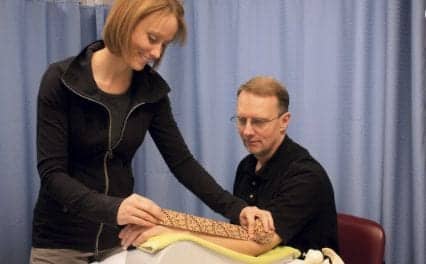The U.S. Department of Veterans Affairs (VA) was lauded for its Caregiver Support Program, which engages Caregiver Support Coordinators to assist family caregivers of veterans and provides services to aid in caring for their loved ones. The praise came from Washington, DC-based Partnership for Quality Home Healthcare.
As the result of providing veterans and their family members with access to a Caregiver Support Coordinator, the VA is assisting veterans and their families to receive needed treatment in a preferred home setting, according to a media release from the Partnership for Quality Home Healthcare.
The media release also states that the VA’s Caregiver Support Coordinator program complements other steps the VA has taken to foster greater use of clinically-advanced, cost-effective and patient-preferred home healthcare, including the highly-regarded Home Based Primary Care (HBPC) program. Established in 1972, HBPC delivers comprehensive in-home healthcare services, which are provided by a skilled interdisciplinary team of clinicians under the management of a VA physician. By providing a range of healthcare services in the home, this program hopes to enable veterans to avoid costly hospitalizations and other institutional care.
“The VA has consistently demonstrated its leadership in providing home-based care, and the addition of the Caregiver Support Program ensures that those who bravely fought for our nation as well as their families have a complete understanding of all the services available to them, including home health,” stated Eric Berger, CEO of the Partnership for Quality Home Healthcare.
In addition to delivering what the Partnership for Quality Home Healthcare media release describes as “clinically effective care,” the HBPC program is also reported to significantly reduce healthcare costs for veterans. The release adds that the VA data indicate the HBPC has reduced inpatient hospital days by 62%t and long term care days by 88 percent, resulting in a 24% decrease in total healthcare costs for HBPC patients.
“Thanks to the VA’s focus on home health and the support it is providing to family caregivers, many more of our nation’s veterans will be able to receive clinically advanced care at home to manage chronic illness and recover from a hospital stay,” added Berger. “We encourage the health policy community to look closely at these programs as a potential model for Medicare reforms that can expand seniors’ access to skilled, cost-effective home healthcare.”
[Source: Partnership for Quality Home Healthcare]





